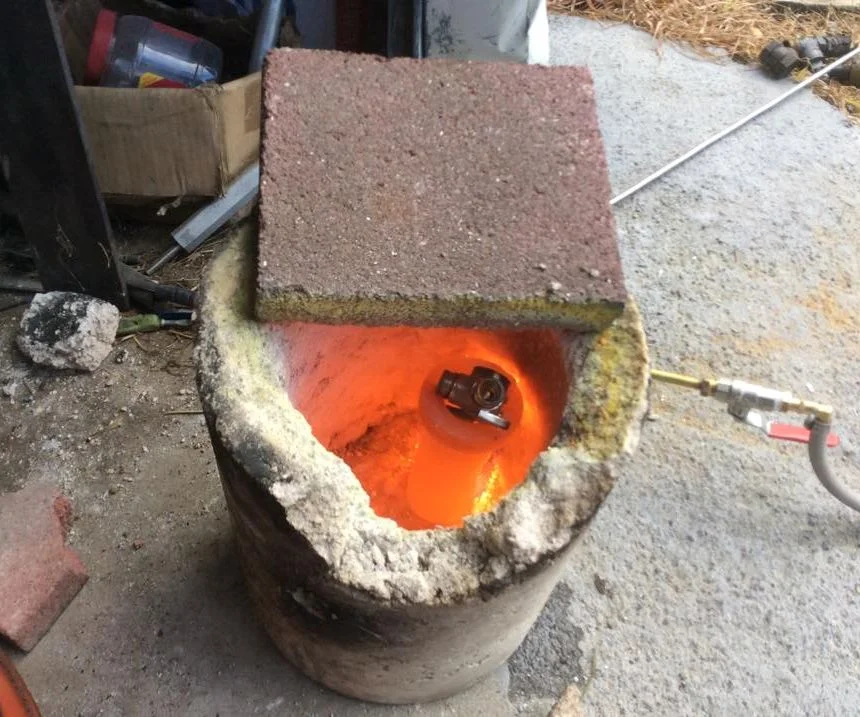The science behind the success of every Casting Foundry
Wiki Article
Finest Practices for Maintenance and Applications in the Aluminum Foundry Field: A Thorough Introduction
Preserving equipment in the aluminum foundry industry is important for operational success. Regular examinations and predictive maintenance can significantly lower downtime and boost safety. Advanced modern technologies, such as IoT and information analytics, play an essential duty in this procedure. Recognizing the full extent of finest techniques calls for a more detailed evaluation of certain strategies and their impacts on efficiency. What are the crucial parts that add to a reliable maintenance framework?Value of Routine Upkeep in Aluminum Foundries
Routine upkeep plays a necessary role in the reliable operation of light weight aluminum shops. By systematically checking and servicing devices, shops ensure peak efficiency and longevity of machinery. Normal maintenance activities, such as lubrication, cleansing, and part substitute, help prevent unforeseen failures that can lead to costly downtime.Furthermore, routine checks boost office security by identifying potential threats before they escalate right into significant concerns. Devices that is properly maintained operates a lot more effectively, resulting in improved item high quality and decreased waste. Furthermore, adherence to a structured maintenance routine can sustain conformity with market guidelines, therefore cultivating an online reputation for reliability and quality within the market.
Implementing Predictive Upkeep Methods
Predictive upkeep strategies take the concepts of regular upkeep an action better by leveraging information analytics and progressed tracking innovations. In aluminum factories, these methods make it possible for drivers to prepare for devices failings before they happen, therefore reducing unplanned downtimes and enhancing functional performance. By making use of sensing units and IoT devices, real-time information can be collected on equipment performance, permitting the recognition of prospective problems through predictive analytics.Optimizing Melting and Pouring Processes
Reliable melting and putting processes are important for making the most of efficiency and assuring the high quality of light weight aluminum spreadings. To boost these processes, factories should concentrate on specific temperature control throughout melting, as this straight impacts the metallurgical residential or commercial properties of the alloy. Making use of advanced melting modern technologies, such as induction and resistance melting, can boost energy efficiency and minimize cycle times.Carrying out automated pouring systems minimizes human error and keeps consistency in the pouring process. Correct mold preparation, including ample preheating, is necessary to avoid thermal shock and boost mold long life.

Enhancing Safety And Security Procedures in Factory Workflow
Focusing on safety in aluminum foundry procedures is vital for securing employees and ensuring an effective environment. Full Report Reliable safety and security protocols consist of routine training sessions that stress the relevance of individual protective equipment (PPE), such as gloves, helmets, and goggles. In addition, the facility of clear emergency procedures is vital in handling possible crashes.Routine evaluations of equipment and machinery assistance determine risks before they escalate into serious issues. Carrying out a durable reporting system encourages employees to connect security problems without anxiety of repercussion. Fostering a society of safety and security warranties that every employee comprehends their function in keeping a secure work environment.
Furthermore, guaranteeing proper ventilation and tracking air top quality can alleviate direct exposure to hazardous fumes and dust. By reinforcing these techniques, aluminum foundries can considerably minimize the risk of mishaps and produce a setting where workers really feel valued and risk-free, inevitably enhancing total operational effectiveness.
Leveraging Modern Technology for Improved Efficiency
Utilizing advanced modern technology has ended up being progressively crucial for aluminum factories aiming to enhance operational effectiveness. Automation and robotics play a vital function in enhancing production processes, reducing labor prices, and lessening human error. Carrying out real-time monitoring systems allows for the constant analysis of tools official website performance, enabling positive upkeep and reducing downtime.
The integration of data analytics offers useful insights right into operational operations, assisting in better decision-making and source appropriation. For instance, anticipating analytics can determine prospective failings prior to they occur, more enhancing maintenance routines.
Furthermore, embracing advanced melting and casting modern technologies enhances energy performance and product yield, which are essential for sustainability in the industry. By welcoming these technical improvements, aluminum foundries can not only enhance performance yet likewise preserve a competitive side in a progressively demanding market (aluminum foundry). Ultimately, leveraging technology is critical in driving innovation and enhancing general operational efficiency within the market

Regularly Asked Concerns
What Prevail Indicators of Devices Use in Aluminum Foundries?
Typical signs of tools wear in aluminum foundries include uncommon sounds, lowered performance, increased resonance, overheating parts, leakages, and noticeable corrosion. These indicators frequently signal the requirement for maintenance or potential useful content substitute to stay clear of costly downtime.Exactly How Can I Train Staff for Effective Maintenance Practices?
To educate team for effective upkeep methods, one can apply hands-on workshops, create detailed manuals, motivate mentorship programs, and conduct regular assessments to examine skills and knowledge, making sure all staff members comprehend upkeep protocols extensively.What Are the Ecological Rules for Light Weight Aluminum Foundries?
Light weight aluminum foundries undergo numerous environmental guidelines, including discharges control, waste administration, and resource preservation. Conformity guarantees minimal ecological impact, advertising sustainability while adhering to local, nationwide, and worldwide environmental criteria and regulations.Just How Do Shops Manage Waste and Recycling of Light weight aluminum?
Factories take care of waste and recycling by applying systems for accumulating scrap light weight aluminum, using sophisticated splitting up technologies, and collaborating with recycling centers to ensure efficient recovery processes, thereby decreasing environmental influence and advertising sustainability within the market.What Are the Prices Connected With Implementing Advanced Technologies?
Applying advanced innovations in shops sustains substantial costs, consisting of first investment, training, and maintenance expenses. The lasting advantages, such as enhanced efficiency and lowered waste, usually validate these expenditures, leading to enhanced productivity. (Casting Foundry)
Report this wiki page